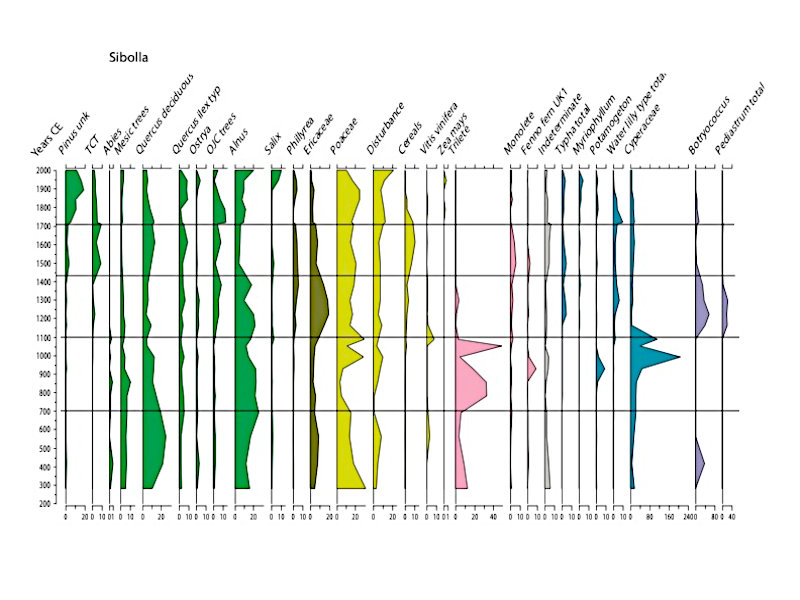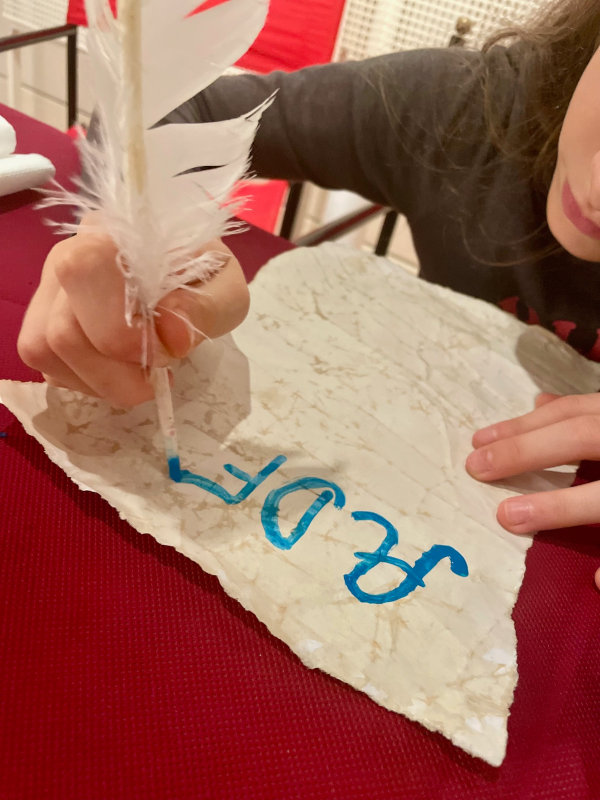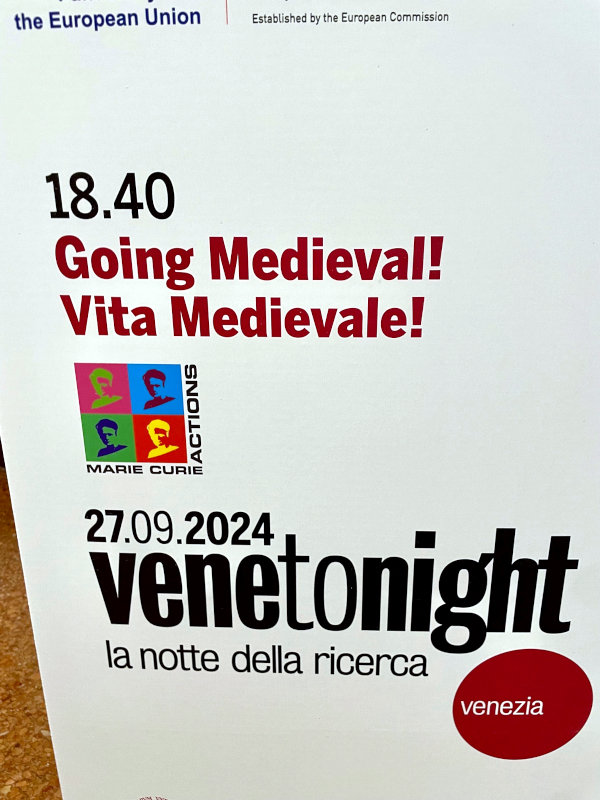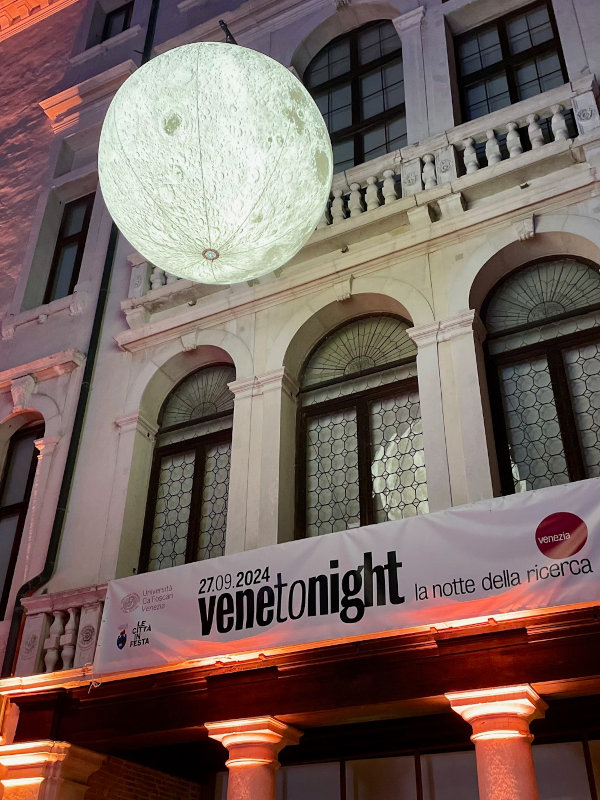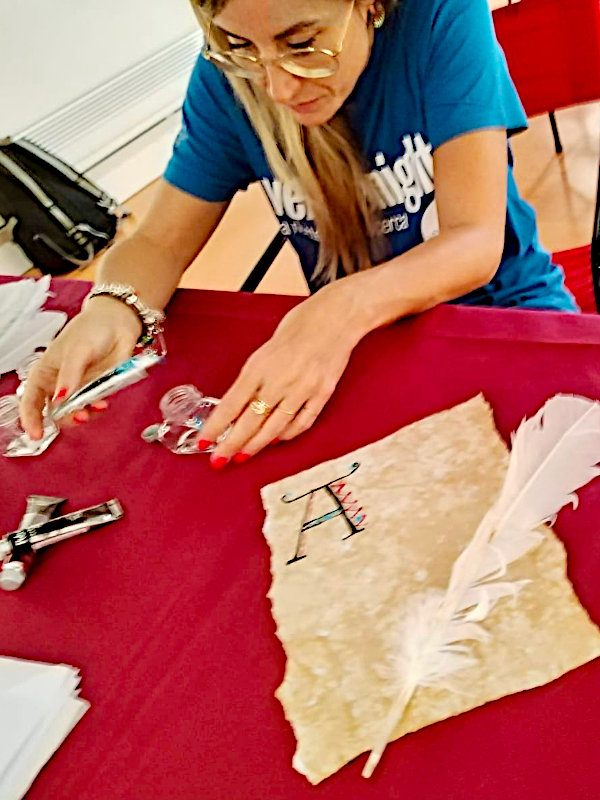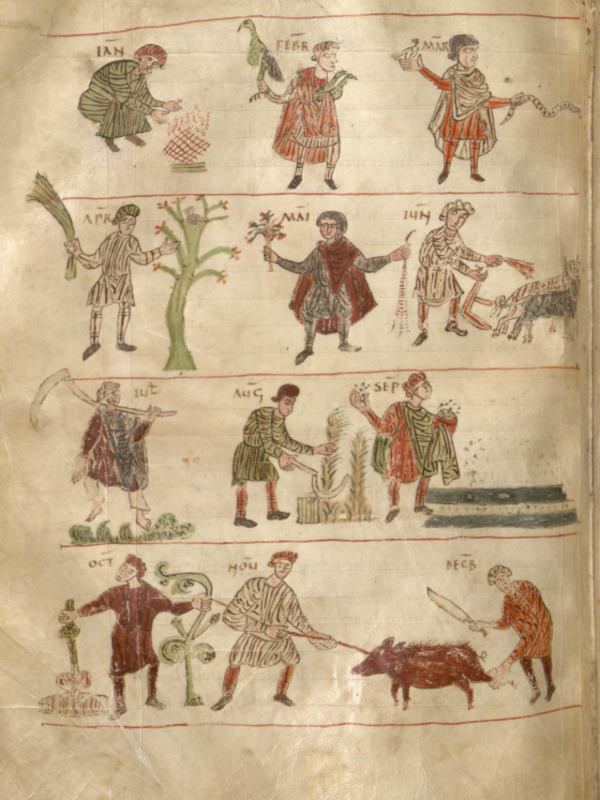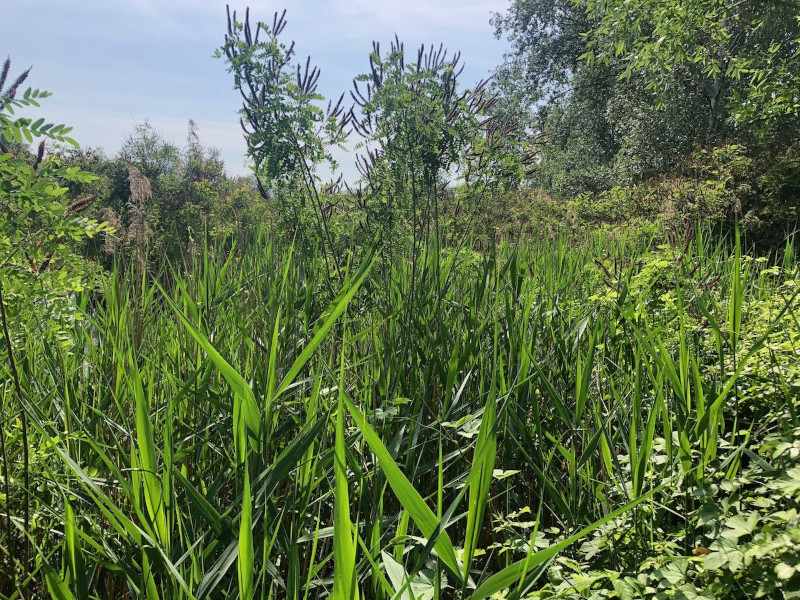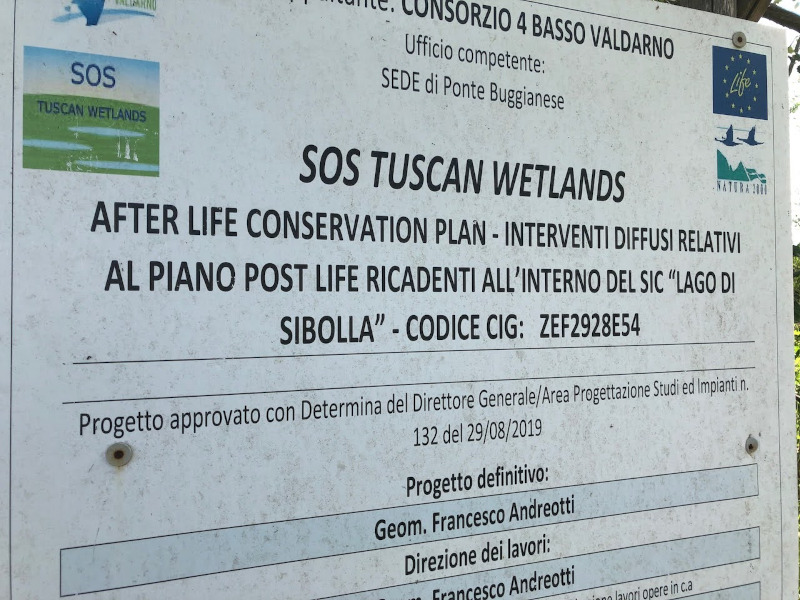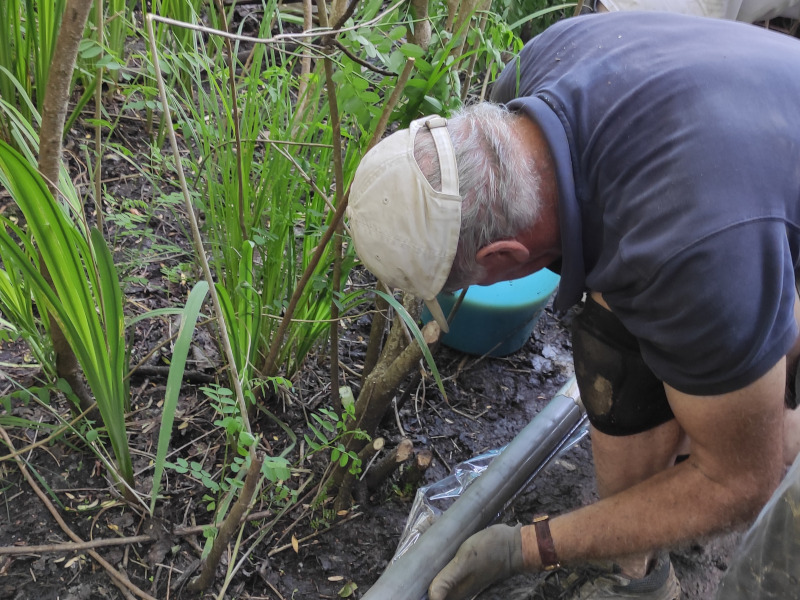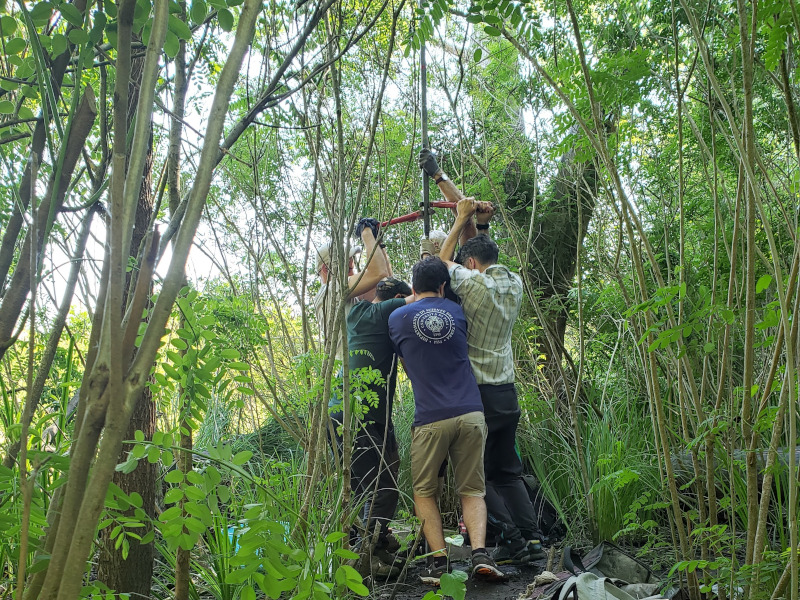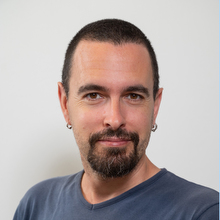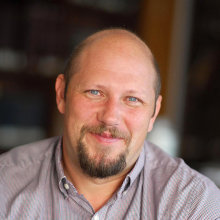In&Around
Patterns of land-use and human mobility in a time of climate changes
Project
Overview
By design the In&Around project lies at the intersections between environmental history, historical climatology, and mobility studies set into the context of the European Middle Ages. It integrates different kind of dataset, i.e., historical/documentary texts, archaeological materials, and physical/natural proxy data, and combines climate reconstructions and the study of human history.
The project investigates central Italy between the 6th and 10th centuries, an area which represents one of the most important political and social laboratories in Western Europe for the target period, and researches:
- how climate and environmental changes impact human behaviour and vice versa in the two micro-regions of Lucca and Rieti,
- the interaction between climate and human agency, in the form of political decision making on the environment, people, and workforce’s relocation.
The outcomes are significant in that new proxy data from lake sediments will make available for the scientific community. More importantly, through an effort towards a conceptual sophistication in the study of the human-climate interactions, and especially of the migration-climate change nexus, new interpretative categories of the non-linear links between climate variability and patterns of human mobilities will be developed.
Objectives
The In&Around project aims to fill a major gap in current scholarship on past climate variability and change, where an uneven temporal focus is observable and Italy in the early Middle Ages has so far received little coverage.
Moreover, it aims to bring a contribution to the many challenges of interdisciplinary research, by testing best practices and putting into dialogue historians and hard scientists and their diverse research portfolios.
The method is tested in the two micro-regions of Lucca and Rieti, in central Italy, where the consistency of coherent series of written records and proxy data from newly extracted lake sediments, now under examination, is promising.
Events and activities
2024
27/10/2024 – International workshop “Around&Beyond: Climate, Environment, and Society in Mediterranean and Italian Landscapes”, Venice (Italy)
The workshop Around&Beyond will gather a pool of international scholars in Mestre (Venice) who are committed to the study of human-environment and human-climate interactions in the Mediterranean region during the Middle Ages. Studying these interactions requires the integration of a number of different scientific approaches (historical, archaeological, paleobotanic) and data sets (written texts, material culture and proxy data from natural records).
It intends to be a unique occasion to reexamine this issue of the actions and responses of past societies as they faced climatic and environmental changes, and for all its participants to engage with the latest developments in this field. At the same time, it will provide researchers with different national and academic backgrounds an opportunity to share their expertise while facilitating new scientific collaborations for future research.
27/10/2024 – Veneto Night “Going Medieval!”
Veneto Night is an important opportunity to communicate academic research to a wide audience by sharing knowledge through educational activities open to the community and the general public with a particular focus on school-age students and young people.
In this context through the hand-on activity “Going Medieval!” kids and their parents and school teachers will learn about the In&Around project and get familiar to what means being a professional historian and the rage of sources that an historian normally uses in is work, parchments included.
August 2024 – Realization of an informative video
03/07/2024 – Conference presentation “Climate (Im)mobilities: Displacement, Adaptation in situ and Power in Times of Environmental Stress (Italy, 6th to 10th cc.”, Leeds (UK)
Italy between the 6th and 10th cc. represents one of the most extraordinary political and societal laboratories in western Europe. Institutional transformations, which radically reshaped its political makeup, went hand in hand with changes in the landscape and settlement patterns, such as, agricultural intensification/forest restoration, the decline/resurgence of towns, the shift from lowland to top-hill sites. This paper integrates into the ongoing debate on the socio-political actors responsible for these changes the role of climate and environmental constrains as part of a complex web of drivers. More specifically, by building on the concept of climate im(imobilities), it nuances the neo-deterministic approach which is still in vogue today and seeks to shed new light on the various ways in which climatic and environmental factors impacted the medieval local communities and their ability to adopt coping strategies, ranging from local relocations and circular mobilities, to voluntary immobility and in-situ adaptation.
|
|
Flyer conference 03/07/2024 | 136 KB |
29-30/05/2024 – International workshop “Paleoecology, History and Biodiversity. Understanding long-term influences of people on landscapes and their application to conservation practices”, Pisa (Italy)
This workshop comes as a follow-up of the international workshop held in Pisa in 2022. It is conceived as a discussion forum and a working session bringing together the staff of the In&Around project and the team of the NSF “Combining Historic and Ecologic Archives to Understand Past Environmental Change” project.
The In&Around project is configured as an integral part of NSF initiative. Interdisciplinarity at different levels is the pillar of the workshop, which seeks to foster consilience between sciences and humanities and thus meeting the call for a closer collaboration between paleoclimatologists and historians.
The results of the field work conducted in the territory of Lucca in May 2022 will be presented and discussed for the first time ever in an open event which sees the participation of academics, PhD students and the public at large.
23/05/2024 - Open event “Understanding Past Landscape Change through Models, Proxies, and Historical Archives: The Case of Medieval Rieti, Italy”, Venice (Italy)
Through interdisciplinary research, new insights have been made as to the various forces that shape landscapes over time. But there are major challenges in understanding premodern environmental change when the evidence appears in different scales and from different types of models, proxies, and historical records. Models, including those for climate patterns, geology, and biogeography, offer expansive data sets for understanding the effects of patterns in annual and seasonal temperature and precipitation, geochemistry, and taxa distribution by altitude. Environmental proxies, such as palynological archives and dendrochronology, offer local-scale perspectives on species and landscape type on the one hand, and summer temperature and precipitation records on the other. Finally, historical archives preserve both human attitudes to the landscape and perspectives as to its intended use. When taken together in the cases of the ecological history of the medieval Rieti basin, these different projections reveal a complex story of managed landscape successions catalyzed by factors including continental climate changes and local political and economic drivers.
Previous years
25/04/2023 - Open event "Observation and experience in late antique and early medieval Mediterranean environments", Reno (USA)
This open lecture comes towards the end of the out-going phase of the project. It is open to all, staff, teachers and graduate students of the University of Nevada, Reno, and the citizenships. It brings to Reno prof. Helen Foxhall Forbes of Ca’ Foscari University of Venice. Prof. Helen Foxhall Forbes is the principal investigator of the ERC project SSE1K: Science, Society and Environmental Change in the First Millennium CE. The SSE1K project explores the environmental and climatic changes that have been identified as causes for societal and political processes and events in the Mediterranean in the first millennium CE. It holds, therefore, intersectional aspects with the In&Around project. The event is the perfect venue for discussion on the growing interest in climate variability and change in past and present societies which recent decades have witnessed in scholarly research and the public opinion alike.
|
|
Flyer open event 25/04/2023 | 517 KB |
17-19/05/2022 - International workshop "Between land use and environmental change: history, climate, and paleoecology of medieval Italy and beyond", Pisa (Italy)
This workshop comes towards the mid of the project. It is open to all, staff, graduate students, and the public at large.
It brings together scholars across disciples, historians, archeologists, geographers, paleoecologists, geologists, climatologists, and forestry specialist.
It aims at face a number of challenges which the interdisciplinary research still faces.
These range from miscommunication among scholars owing to the use of different vocabulary, scales, methods, and perspectives, to the overall lack of proper epistemological devices.
Overcoming miscommunication is fundamental to go beyond oversimplistic explanations of complex sociocultural phenomena, where anthropogenetic and climatic factors interact in non-linear ways.
|
|
Flyer workshop 17-19/05/2022 | 497 KB |
May 2022 - Field work: Lucca plain
The In&Around project is configured as an integral part of the Combining Historic and Ecologic Archives to Understand Past Environmental Change project, financed by the USA National Science Foundation (NSF) and based at the University of Nevada, Reno (UNR). Thanks to the NSF initiative in May 2022 a core drilling campaign has been conducted in the area of the Lucca Palin. Lake sediment cores have been collected in two localities. The first core was taken from the Natural Reserve Lago di Sibolla, in the province of Lucca within the Commune of Altopascio. The second core was taken in the protected natural area of the Bottaccio Oasis, in the Province of Lucca within the Commune of Capannori. The cores are now under examination by the research team based at UNR.
Team
Annamaria Pazienza
Principal investigator
Davide Zanchettin
Supervisor at Ca’ Foscari
Edward Schoolman
Outgoing phase supervisor
The In&Around project has been developed in collaboration with the University of Nevada - Reno and the research team associated to the Combining Historic and Ecologic Archives to Understand Past Environmental Change project, sponsored by the USA National Science Foundation (NSF) and run by Scott Mensing (Principal Investigator), Adam Csank (Co-Principal Investigator) and Edward Schoolman (Co-Principal Investigator).


